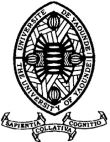Factors Associated with Covid-19 Vaccines Acceptance Among Health Care Professionals in the West Region of Cameroon
Facteurs Associés à l’Acceptation du Vaccin Anti-COVID-19 par les Professionnels de Santé de la Region de l’Ouest du Cameroun
DOI:
https://doi.org/10.5281/hra.v2i8.5936Keywords:
Covid-19, vaccination, associated factors, health professionals, West regionAbstract
RESUME
Introduction. Plusieurs hésitations ont été observées dans la population en général et parmi les professionnels de santé en particulier concernant la vaccination COVID-19. L'objectif de cette étude était de déterminer les facteurs associés à l'acceptation du vaccin COVID-19 parmi les professionnels de santé dans la région de l'Ouest Cameroun. Méthodologie. : Il s’agissait d’une étude mixte composée d’une étude quantitative du type descriptif et analytique et une étude qualitative sur une période de 11 mois, allant de Janvier 2022 à Novembre 2022 portant sur les professionnels de santé de cinq districts sanitaires de la région de l'Ouest Cameroun à savoir Ds Baham, Bandjoun, Foumban, Mbouda, Mifi. Résultats. Nous avons enregistré 665 professionnels de la santé avec un sex ratio de 0,3. La tranche d’âge de 19 à 29 ans était la plus représentée (49,76 %). Le taux de vaccination contre le COVID-19 parmi le personnel de santé était de 48,53 % (IC 95 % : 44,67 % - 52,39 %). Les facteurs indépendants associés à l’acceptation au vaccin COVID-19 parmi le personnel de santé étaient : le sexe féminin ([OR : 0,65 (0,43-0,92)]), la religion chrétienne ([OR : 0,48 (0,28-0,63)]), le témoignage d'une personne atteinte de la forme sévère du covid-19 ([OR : 0,24 (0,07-0,76)]), la connaissance d'un centre de vaccination contre le covid-19 ([OR : 0,75 (0,03-0,98)]) et la recommandation du vaccin contre le covid-19 à un proche parent ([OR : 0,23 (0,09-0,55)]). Conclusion. Les facteurs sociodémographiques, socioprofessionnels et socioculturels influencent l'acceptation des vaccins COVID-19 parmi les professionnels de santé.
ABSTRACT
Introduction. Several hesitations have been observed in the general population and among healthcare professionals in particular regarding COVID-19 vaccination. The objective of this study was to determine the factors associated with the acceptance of the COVID-19 vaccine among healthcare professionals in the West region of Cameroon. Methodology: This was a mixed study composed of a descriptive and analytical quantitative study and a qualitative study over a period of 11 months, from January 2022 to November 2022, involving healthcare professionals from five healthcare districts in the West region of Cameroon, namely Ds Baham, Bandjoun, Foumban, Mbouda, and Mifi. Results. We included 665 healthcare professionals with a sex ratio of 0.3. The age group of 19 to 29 years was the most represented (49.76%). The vaccination rate against COVID-19 among healthcare personnel was 48.53% (95% CI: 44.67% - 52.39%). The independent factors associated with the acceptance of the COVID-19 vaccine among healthcare personnel were: female gender ([OR: 0.65 (0.43-0.92)]), Christian religion ([OR: 0.48 (0.28-0.63)]), witnessing a person with severe COVID-19 ([OR: 0.24 (0.07-0.76)]), awareness of a COVID-19 vaccination center ([OR: 0.75 (0.03-0.98)]) and recommendation of the COVID-19 vaccine to a close relative ([OR: 0.23 (0.09-0.55)]). Conclusion. Sociodemographic, socioprofessional, and sociocultural factors influence the acceptance of COVID-19 vaccines among healthcare professionals.
References
Jiang N, Wei B, Lin H, Wang Y, Chai S, Liu W. Nursing students’ attitudes, knowledge and willingness of to receive the coronavirus disease vaccine: A cross-sectional study. Nurse Educ Pract. août 2021;55:103148.
Chronologie de l’action de l’OMS face à la COVID-19 [Internet]. [cité 22 oct 2022]. Disponible sur: https://www.who.int/fr/news/item/29-06-2020-covidtimeline
WHO Coronavirus (COVID-19) Dashboard [Internet]. [cité 22 oct 2022]. Disponible sur: https://covid19.who.int
OMS; 2021. Feuille de route du SAGE de l’OMS pour l’établissement des priorités concernant l’utilisation des vaccins anti-COVID-19 dans un contexte d’approvisionnement limité : approche visant à éclairer la planification et les recommandations ultérieures selon différents scénarios épidémiologiques et d’approvisionnement en vaccins, 20 octobre 2020 [Internet]. Organisation mondiale de la Santé; 2020 [cité 10 juill 2022]. Report No.: WHO/2019-nCoV/Vaccines/SAGE/Prioritization/2020.1. Disponible sur: https://apps.who.int/iris/handle/10665/341446
Vaccins et vaccination : qu’est-ce que la vaccination ? [Internet]. [cité 25 mars 2022]. Disponible sur: https://www.who.int/fr/news-room/questions-and-answers/item/vaccines-and-immunization-what-is-vaccination
Khairat S, Zou B, Adler-Milstein J. Factors and Reasons Associated with Low COVID-19 Vaccine Uptake among Highly Hesitant Communities in the US. Am J Infect Control. 4 janv 2022;S0196-6553(21)00850-6.
Aissaoui N. IMMUNITE AFRICAINE CONTRE LE COVID-19 : CINQ HYPOTHESES A CONFIRMER. Rev Econ Gest Société [Internet]. 19 août 2020 [cité 22 oct 2022];1(25). Disponible sur: https://revues.imist.ma/index.php/REGS/article/view/22425
Pormohammad A, Zarei M, Ghorbani S, Mohammadi M, Razizadeh MH, Turner DL, et al. Efficacy and Safety of COVID-19 Vaccines: A Systematic Review and Meta-Analysis of Randomized Clinical Trials. Vaccines. 6 mai 2021;9(5):467.
Sharif N, Alzahrani KJ, Ahmed SN, Dey SK. Efficacy, Immunogenicity and Safety of COVID-19 Vaccines: A Systematic Review and Meta-Analysis. Front Immunol. 11 oct 2021;12:714170.
| MINSANTE; 2021 [Internet]. [cité 6 mars 2022]. Disponible sur: https://www.minsante.cm/site/?q=fr/content/covid-19-la-vaccination-commenc%C3%A9
Coronavirus Disease (COVID-19) Situation Reports [Internet]. [cité 7 mars 2022]. Disponible sur: https://www.who.int/emergencies/diseases/novel-coronavirus-2019/situation-reports
Saied SM, Saied EM, Kabbash IA, Abdo SAE. Vaccine hesitancy: Beliefs and barriers associated with COVID‐19 vaccination among Egyptian medical students. J Med Virol. juill 2021;93(7):4280‑91.
AlShurman BA, Khan AF, Mac C, Majeed M, Butt ZA. What Demographic, Social, and Contextual Factors Influence the Intention to Use COVID-19 Vaccines: A Scoping Review. Int J Environ Res Public Health. 4 sept 2021;18(17):9342.
Lin C, Tu P, Beitsch LM. Confidence and Receptivity for COVID-19 Vaccines: A Rapid Systematic Review. Vaccines. 30 déc 2020;9(1):16.
Fares S, Elmnyer MM, Mohamed SS, Elsayed R. COVID-19 Vaccination Perception and Attitude among Healthcare Workers in Egypt. J Prim Care Community Health. déc 2021;12:21501327211013303.
Biswas N, Mustapha T, Khubchandani J, Price JH. The Nature and Extent of COVID-19 Vaccination Hesitancy in Healthcare Workers. J Community Health. déc 2021;46(6):1244‑51.
Gagneux-Brunon A, Detoc M, Bruel S, Tardy B, Rozaire O, Frappe P, et al. Intention to get vaccinations against COVID-19 in French healthcare workers during the first pandemic wave: a cross-sectional survey. J Hosp Infect. févr 2021;108:168‑73.
Elharake JA, Galal B, Alqahtani SA, Kattan RF, Barry MA, Temsah MH, et al. COVID-19 Vaccine Acceptance among Health Care Workers in the Kingdom of Saudi Arabia. Int J Infect Dis IJID Off Publ Int Soc Infect Dis. août 2021;109:286‑93.
El-Sokkary RH, El Seifi OS, Hassan HM, Mortada EM, Hashem MK, Gadelrab MRMA, et al. Predictors of COVID-19 vaccine hesitancy among Egyptian healthcare workers: a cross-sectional study. BMC Infect Dis. 5 août 2021;21(1):762.
Fares S, Elmnyer MM, Mohamed SS, Elsayed R. COVID-19 Vaccination Perception and Attitude among Healthcare Workers in Egypt. J Prim Care Community Health. déc 2021;12:21501327211013303.
Kumar R, Alabdulla M, Elhassan NM, Reagu SM. Qatar Healthcare Workers’ COVID-19 Vaccine Hesitancy and Attitudes: A National Cross-Sectional Survey. Front Public Health. 2021;9:727748.
Adejumo OA, Ogundele OA, Madubuko CR, Oluwafemi RO, Okoye OC, Okonkwo KC, et al. Perceptions of the COVID-19 vaccine and willingness to receive vaccination among health workers in Nigeria. Osong Public Health Res Perspect. août 2021;12(4):236‑43.
Downloads
Published
How to Cite
Issue
Section
License
Copyright (c) 2024 Kenmegne Noumsi Elvira Christelle, Kum Jerry Ngha, Ebouki Emilienne Regine, Bassong Olga

This work is licensed under a Creative Commons Attribution-NoDerivatives 4.0 International License.
Authors who publish with this journal agree to the following terms:
- Authors retain copyright and grant the journal right of first publication with the work simultaneously licensed under a Creative Commons Attribution License CC BY-NC-ND 4.0 that allows others to share the work with an acknowledgement of the work's authorship and initial publication in this journal.
- Authors are able to enter into separate, additional contractual arrangements for the non-exclusive distribution of the journal's published version of the work (e.g., post it to an institutional repository or publish it in a book), with an acknowledgement of its initial publication in this journal.
- Authors are permitted and encouraged to post their work online (e.g., in institutional repositories or on their website) prior to and during the submission process, as it can lead to productive exchanges, as well as earlier and greater citation of published work










